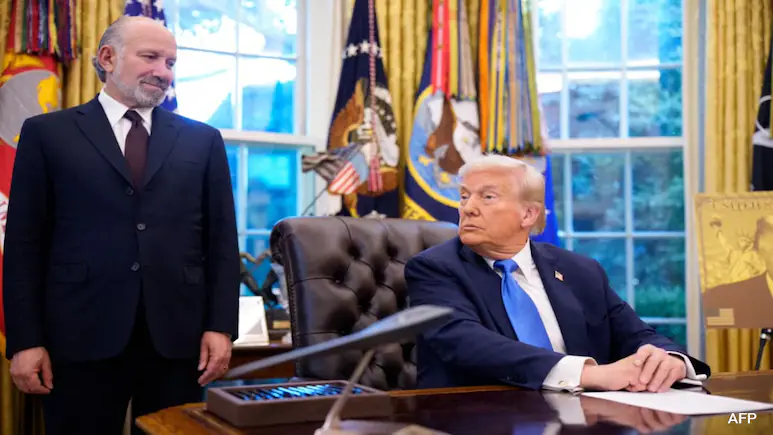Washington — U.S. President Donald Trump appeared to soften his tone on immigration reforms, acknowledging that America still relies on foreign skilled workers to fill critical roles in sectors like technology and defence, even as his administration continues its crackdown on the H-1B visa program.
Speaking with Fox News host Laura Ingraham, Trump pushed back against criticism that his policies are hurting innovation by limiting access to skilled foreign labour. “You do have to bring in talent,” he said. When Ingraham countered that America already has enough skilled workers, Trump replied bluntly: “No, you don’t.”
“You don’t have certain talents,” he added. “You can’t take people off an unemployment line and say, I’m going to put you into a factory. We’re going to make missiles.”
The statement comes amid rising concern over the administration’s restrictive immigration measures, including a $100,000 fee imposed in September on all new H-1B visa applications, and a wave of federal investigations into alleged program abuses.
According to official data, Indian nationals accounted for more than 70 per cent of all H-1B visa approvals in 2024, reflecting both the ongoing backlog in U.S. processing and the high concentration of Indian professionals in sectors like information technology, engineering, and healthcare.
In a sign of intensifying enforcement, the U.S. Department of Labor launched 175 active investigations under “Project Firewall,” targeting companies suspected of exploiting the visa system for cheap labour. The program allows U.S. employers to hire foreign workers in specialized fields that require advanced skills and education.
Meanwhile, Florida Governor Ron DeSantis recently ordered the state’s Board of Governors to eliminate H-1B positions across public universities, insisting that such roles should be reserved for Florida residents. “Why are we bringing people in to assess our accreditation on an H-1B visa? We can’t do that with our own people?” DeSantis said, calling the practice “cheap labour.”
Despite these measures, the White House reiterated that Trump’s overall goal is not to abolish the visa but to “put American workers first” while ensuring accountability and preventing fraud. The administration also vowed to fight ongoing lawsuits challenging its recent immigration restrictions.
The mixed signals from Washington — with Trump defending the need for foreign talent even as his policies tighten access — have left many in the global tech community uncertain about the future of skilled immigration to the U.S.

